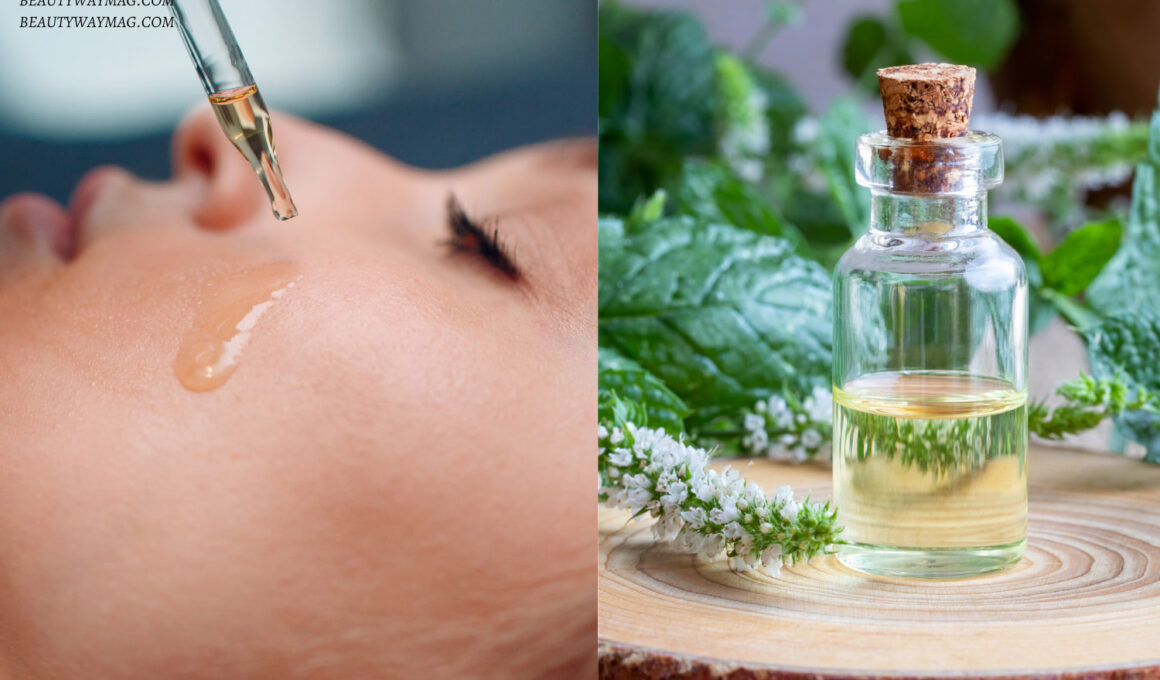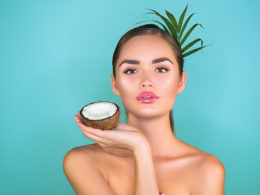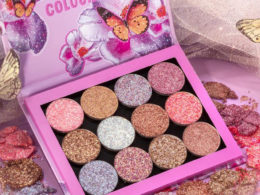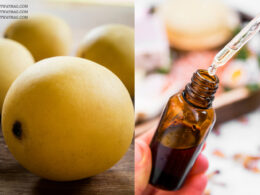Table of Contents Show
Peppermint oil is one of the most commonly used essential oil but not many are familiar with its benefits and uses. This popular essential oil is taken from the flowering plant and leaves of the peppermint plants, it can be used for various purposes.
Olive oil might have been the popular choice for hair and skin care but did you know peppermint oil can enhance hair and skin beauty?
Peppermint oil has been used for health treatments for several years, and it’s one of the oils that has its history dating back to popular Ancient counties such as Ancient Greek, Rome, and Egypt. This oil covers over 40 trusted sources of compounds.
In addition, peppermint oil has antibacterial and anti-inflammatory properties which can be of great benefit for restoring the health of your hair and skin. Considering peppermint oil’s popularity, many people are still skeptical about its benefits.
Know that this refreshing oil can do wonders, so knowing more about it can further inform you about its valuable uses. This article discusses the history of peppermints, their benefits on the skin and hair, with some of their potential side effects.
History of Peppermint Oil
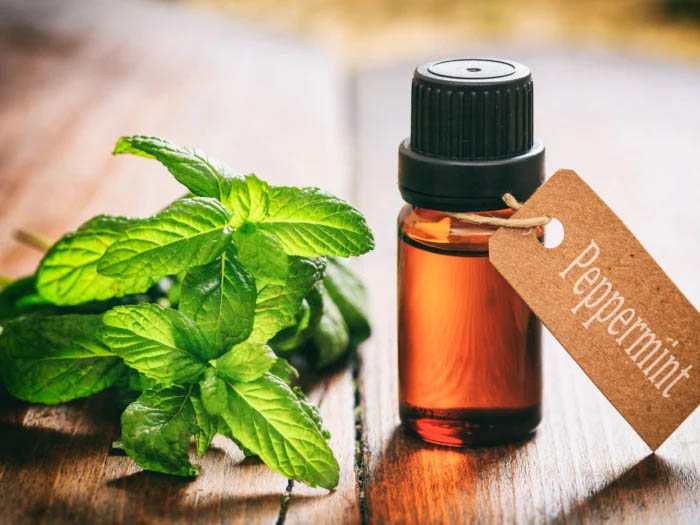
Peppermint oil is derived from the natural peppermint plant, which can be identified by its serrated leaves and flowers that ranges from light pink to mauve.
The history of this essential oil can be traced to Chinese and Japanese folk medicine practices and there is also research that indicates it is from Ancient Egypt.
Irrespective of where peppermints originated from, it is highly beneficial for humans. It is used extensively in aromatherapy and contains compounds such as omega-3 fatty acids, magnesium, copper, manganese, vitamins A and C, calcium, iron, and potassium. The major compounds in peppermint oil are menthol and menthone.
Natural peppermint oil is yellow, although some colors might be altered after adding other essential or carrier oils. The peppermint leaves have to be planted properly and checked, this is because it can compromise the quality of the essential oil hence why some producers distill the peppermint as soon as it is cut.
Peppermint Oil Benefits For Hair, Skin, More
So, after knowing the history behind peppermint oil, we can move to its benefits for hair, skin, and more. Every oil offers some form of essential benefits for hair and skin and peppermint oil is no exception scientific research has discovered that the oil is powerful in fighting harmful pathogens.
There are several uses of peppermint oil, but there is limited research on its uses on the skin however we have discussed below some of the benefits it is widely known for.
1. Peppermint Oil For Skin
Peppermint oil has been used over the years to alleviate some skin conditions and soothes irritation and itching. Peppermint has a soothing and cooling effect that can help reduce irritation, rashes, skin allergies, and sunburns, so it can be applied on the skin, but it is very potent, so it should not be applied directly on the skin, have it mixed with a carrier oil.
i. Soothes Skin Itching And Irritation
Peppermint oil is often used in cosmetic products, its antimicrobial properties can help inhibit the growth of bacteria on your face. This essential oil offers soothing relief from itching and irritation. Below is how it can be applied.
How to use:
- Fill a bowl with filtered water then add 40 ml of apple cider vinegar and 30 drops of peppermint essential oil to it
- Mix well and transfer to a spray bottle
- Store in the refrigerator
- It can be used as a spray or toner on itchy/irritated skin throughout the day.
ii. Reduces Acne
Peppermint oil has also been known to help kill acne-causing bacteria. Due to its anti-microbial properties, it can help balance the production of sebum thereby reducing acne and pores clogging. Peppermint oil can also help your skin form a barrier against external aggressors that can damage the skin. Below is how to use it to reduce acne.
How to use:
- Mix two tablespoons of cucumber grated cucumber juice and clay
- Then add five drops of diluted peppermint essential oil
- Mix well and apply all over your face, let it dry completely and wash off
- Repeat this twice a week for the best results.
2. Peppermint Oil For Hair
Peppermint oil is good for your hair. It is a non-toxic ingredient that can be massaged into the scalp daily to boost hair growth and promotes blood circulation. Peppermint oil has been used over the years to stimulate hair follicles, and it also can repair dry and damaged hair. Here are some of its notable benefits and uses for hair.
i. Promote Hair Growth
When peppermint oil is massaged into the scalp, it can increase blood circulation which in turn can lead promote hair growth and also lead to healthier thick hair. The oil stimulates the hair follicles while the strong menthol can get rid of lice that prevent hair growth.
How to use:
- Mix 4 teaspoons of coconut oil with 5-10 drops of peppermint oil in a bowl
- Massage the combination into your scalp thoroughly
- Let it stay for 2 to 3 hours before washing
- You can also leave it in overnight and wash it with mild shampoo in the morning.
ii. Nourishes The Scalp
Another notable benefit of peppermint oil for your hair is to nourish it and restores its health. This will also require you to mix with a carrier oil since it’s very potent.
How to use:
- Mix 4 tablespoons of peppermint oil with 5-10 drops of peppermint oil
- Massage into your scalp, leave for at least 2 hours, and wash.
iii. Tackles Dandruff And Lice
Dandruff and lice are two common conditions many natural hairs are prone to, especially in areas where the weather is humid all year round. Peppermint oil has antiseptic and anti-inflammatory properties, so they are a must-have essential oil for relieving your scalp of dryness and irritation that causes dandruff.
How to use:
- Warm up half a cup of coconut oil then add 20 drops of peppermint oil
- Next, add 10 cups of tea tree oil and a teaspoon of vitamin E oil
- Mix this well and transfer it into a bottle
- Apply this to your hair and leave it for a couple of hours before washing it off.
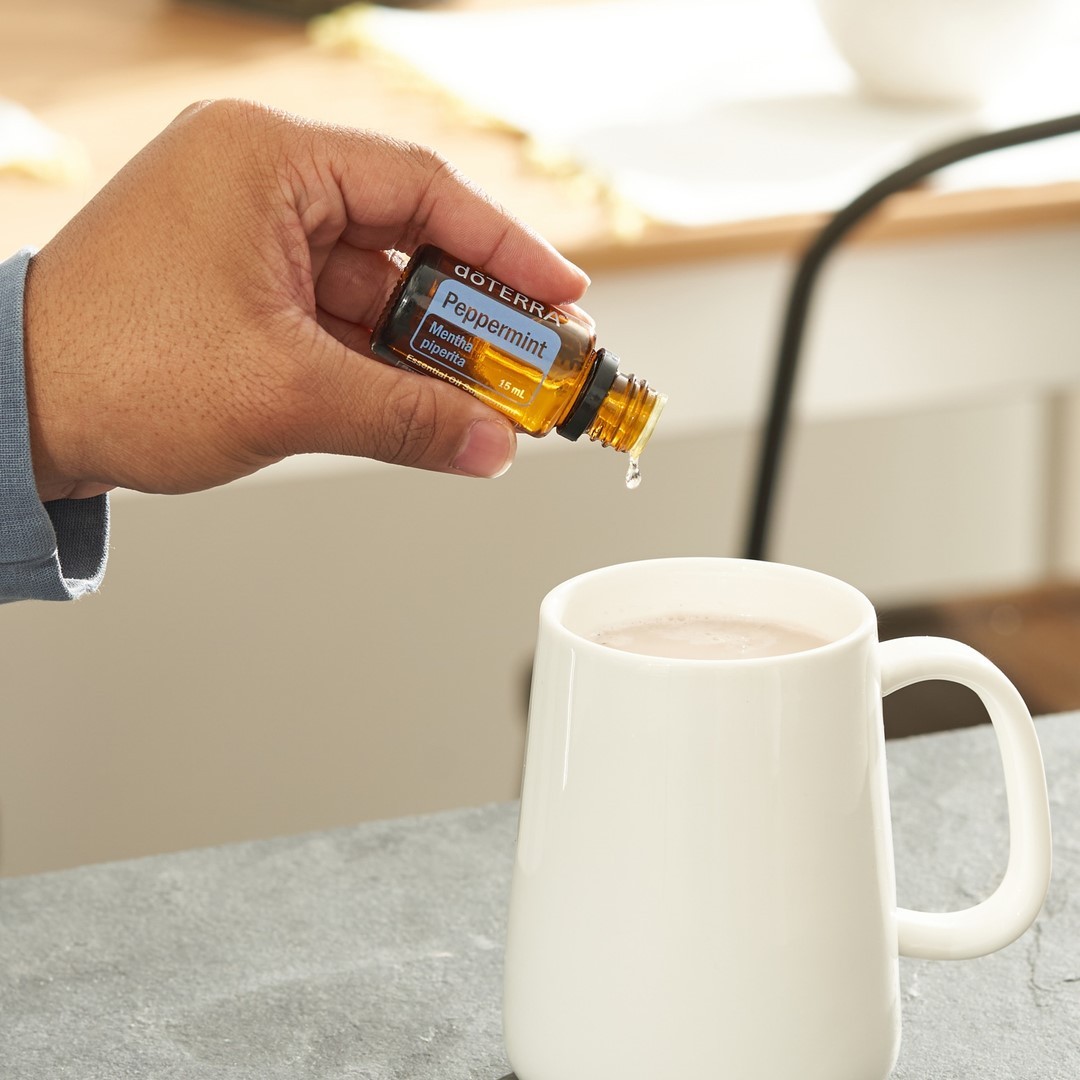
3. Health Benefits of Peppermint Oil
There are several studies on the health benefits of peppermint oil and some of them have been around for centuries even before they are used for hair and skin.
Peppermint oil is a potent remedy for some health conditions, it contains high levels of antioxidants and most drugs available over the counter have been known to contain peppermint oil.
i. Relieves Pain
Traditional peppermint can be used to relieve lots of health issues, it can be used in relieving migraines, headaches, and sore muscles. The oil is commonly used in aromatherapy as it helps calm your mind and senses. The topical application of peppermint oil can also offer you relief from migraines.
How to use it:
- Dilute a few drops of peppermint oil in water
- This can be applied to the temple area to get relief from headaches and migraines
- It contains menthol which can also help relieve muscle aches however seek a professional for any chronic pain or headache.
ii. May Improve Digestion
Studies have shown that peppermint oil is a natural carminative hence it can be used to cure lots of digestive issues like indigestion, bloating, heartburn and gas. Peppermint oil is a natural cure for gastrointestinal conditions due to the menthol in it which inhibits the colon muscle thereby relieving flatulence.
How to use it:
- Get food-grade peppermint oil that can be consumed
- Only a tiny dose is needed to relieve digestion. Dilute 0.2ml to 0.4ml with water and drink up
- If you do not find food-grade peppermint oil, mix the regular essential oil with olive oil and massage this on your stomach for relief.
4. Acts As A Nasal Decongestant
The health benefits of peppermint oil are not limited to relieving pain or muscle aches alone, it can also be used to soothe inflamed nasal passages when it is inhaled.
This contains relaxant properties which makes it an excellent expectorant, analgesic, and decongestant.
You simply have to inhale peppermint oil to get provide relief as the mucus exists in the body hence it’s a more cost-effective and no toxic alternative to commercial drugs.
5. May Help in Treating And Healing Chronic Wounds
The antibacterial properties found in peppermint oil may help get rid of chronic wounds. Study shows that peppermint oil has an antibacterial effect on a wide spectrum of bacteria therefore it can help in treating and healing chronic wounds. It can also protect the wound from germs and other microbes.
Forms Of Peppermint Oil
Peppermint can be found in 3 varieties/form, which includes essential oil, peppermint extract, and peppermint capsules but the essential oil is the most popular one.
Surprisingly essential oils can be inhaled or used topically, but there is a rule that says they have to be used with a carrier oil such as olive oil and coconut oil.
The peppermint capsules can be taken as a dietary supplement while the extract is the more diluted form, and it can be used to add peppermint flavor to food. Also, it is recommended that you do not consume peppermint essential oil unless you are using therapeutic-grade peppermint oil.
Shop Our Recommend Peppermint Oil
What Are The Potential Side Effects of Peppermint Oil?
While peppermint oil does have many benefits, there are a few side effects you should know about. Ingesting peppermint oil can sometimes lead to nausea, dry mouth heartburn, or vomiting.
Using it directly on your skin without mixing with any carrier oil or large doses can cause skin conditions like allergies, sunburns, and rashes.
Although peppermint oil has been safely used in clinical trials, when taken orally there are still few side effects so use it in moderation and consult your doctor if there are any issues.
Frequently Asked Questions
What is peppermint oil best used for?
There are different forms of peppermint oil, and they are often promoted for use on skin, and hair and for treatment of problems such as headaches, itching, muscle aches, joint pain, and sunburn. Peppermint oil is also commonly used for colds, coughs, sore throat, and nasal congestion.
Can I drink peppermint oil in the water?
Yes, drinking peppermint oil in water can aid digestion and be refreshing on a hot day, but only the food-grade peppermint oil, and should also be in small doses. Ensure to get it from a reliable manufacturer and ingest it under medical supervision.
What color is pure peppermint oil?
The color of peppermint oil can tell you if you are getting the original one or not. The color of peppermint oil is clear with a yellow tinge.
Final Thoughts
Peppermint oil has a reputation for being an essential oil with high therapeutic properties but notes that most are highly potent since they are in their most concentrated form.
Peppermint oil is not only good for your hair and skin, but it is also good for your oral health, and inhaling a few can help curb appetite as well thereby aiding weight loss.

